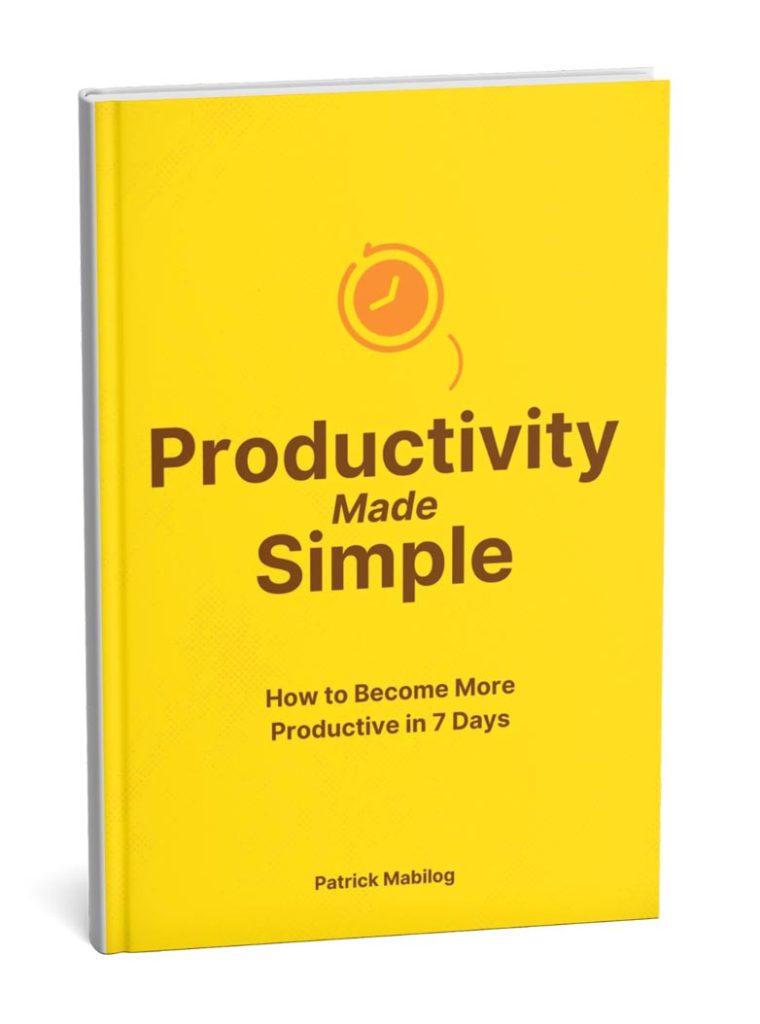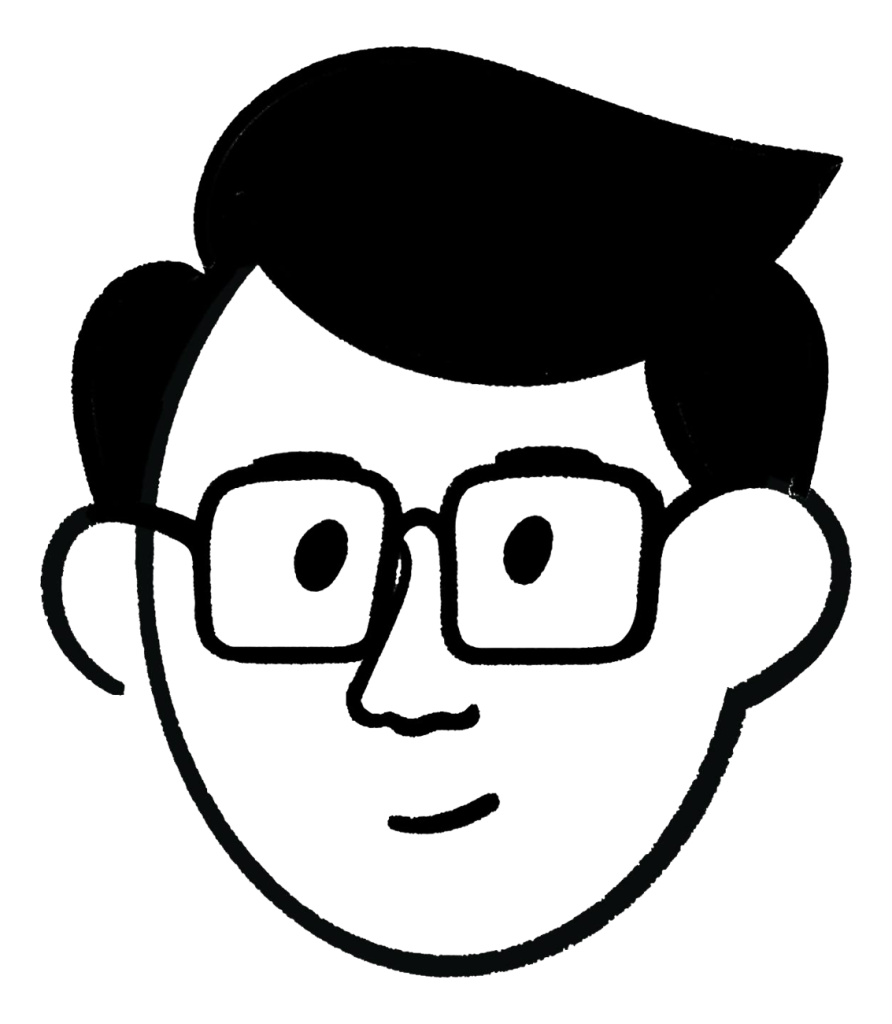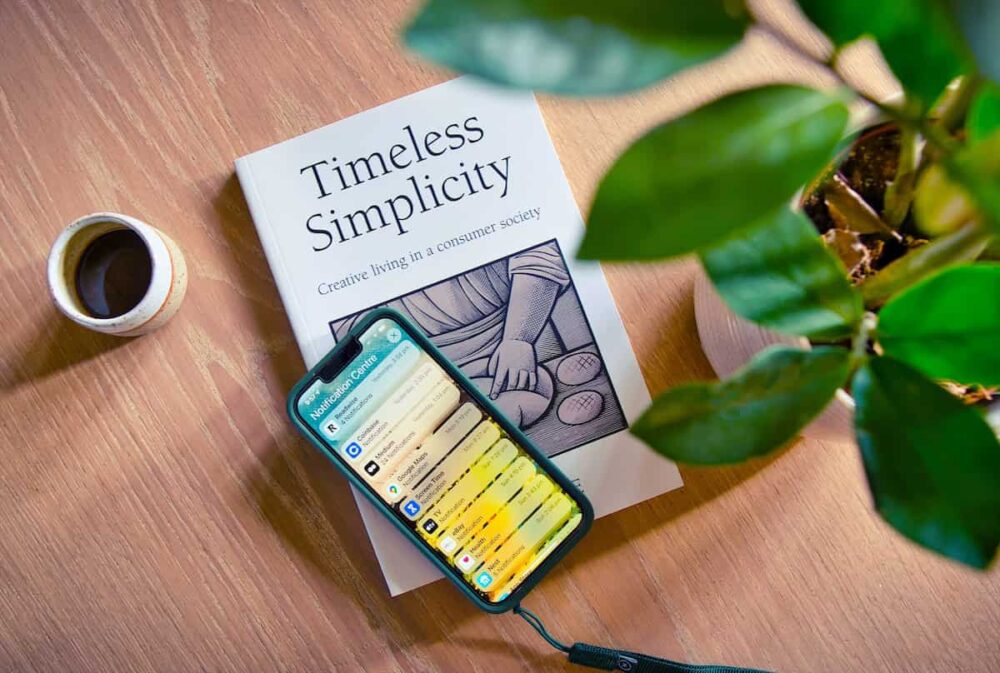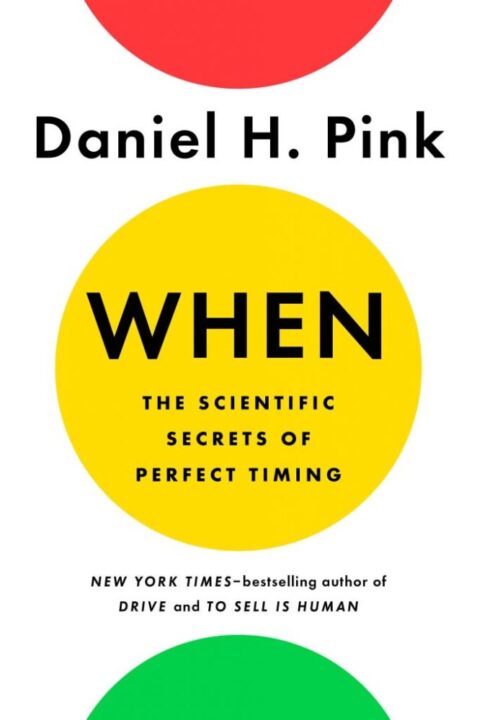It’s no secret that distraction can be a real productivity killer. When we have trouble focusing on tasks that deliver results, we get less done and end up having to do more. That’s why learning how to stay focused is highly beneficial for anyone who wants to get more done.
Over the years, I’ve learned a thing or two that’s helped me manage my focus better and eliminate distractions. As a result, I’ve been able to achieve more while also effectively spending less time working.
Today, I work on multiple projects, run a business, create content, and volunteer in ministry without losing my mind. That’s because my heads-down work has been more meaningful than ever.
I’d love to teach some of these principles to you. So let’s dive in.
Why Can’t We Stay in Focus?

If you’re struggling to stay focused at work, welcome to the club. An overwhelming 84.4% of people admit to getting distracted at work.
There are so many things that grab our attention and pull us away from meaningful work. The first step to improving focus and getting more done is determining the main reasons why we get distractions in the first place.
Here are the main reasons why we get distracted nowadays.
The Internet
Digital distractions are one of the main culprits of productivity degeneration. The internet has sorts of productivity tools to help us get more done. But, it also has many distracting websites that can pull us away from meaningful work.
41% of people get distracted by websites, social media platforms, and the internet in general. When you don’t have guardrails for your internet usage, you end up losing focus many times in the day, losing hours of man hours scrolling through newsfeeds, cat videos, and memes.
Noise
If you’re struggling to learn how to concentrate in work places, it’s probably because you’re overwhelmed by all the noise. I’m a work-from-home professional, and I have been for almost four years now. That said, I enjoy the beauty of controlled work environments (except for the occasional tantrum from our beloved youngest daughter, Sam).
But I know that most people who work in offices don’t have that luxury. I have friends who work in an office where co-workers blast distracting music all the time and endlessly chit-chat as if they were in a wet market.
These are just some examples of noise that can cause you to lose focus. You don’t have to have an attention deficit hyperactivity disorder to get distracted if you work in noisy environments. You’ll lose it easily.
Notifications and Alerts
Like the internet itself, notifications and alerts are both a blessing and a curse. Notifications are great ways to stay connected to your apps and tools. You get alerts on deliverables, deadlines, communications, messages, and more.
But sometimes, our notifications can get out of our control and pull us away from the task at hand. When we get distracted by a notification, it’ll take most people up to 23 minutes to get back on a task after getting interrupted. Notifications are some of the biggest interruptions to our work.
If you want to focus at work, you’ll need some way to manage the hundreds of notifications that flood into your phones, laptops, and tablets at any given point in time.
Communications
The most common notifications we get are communication-related ones. They can either come from emails, phone calls, and messages. Did you know that people distracted by emails and phone calls experience a 10-point fall in their IQ?
Other communication channels that can pull us away from meaningful heads-down work are online and offline meetings, especially the ones that we don’t have to be a part of.
Before realizing how time-wasting uncurated meetings were, I used to attend up to 15 Zoom meetings a week. Now, I’ve been able to cut those meetings down to a few really meaningful ones.
If ever I get invited to a meeting, one of the questions I ask is “do I need to be in this meeting?” What I want to know is if people need my input on certain things within the meeting and if I gain anything from it. If I don’t, there’s a big chance I won’t show up. That way, I can remain focused on execution work that actually brings results.
Entertainment
Many professionals get distracted by entertainment all the time. There’s nothing wrong with the occasional Netflix binge, video game, or YouTube video. But these entertainment channels end up causing disruptions in our work schedule when we let them get out of hand.
Entertainment can impede work performance and ruin our productivity when we spend several hours at a time on them. There’s nothing wrong with entertainment like TV shows and video games, for sure. But if we put those before focused work, we’ll end up losing track of time and losing track of where our time goes.
Small Chat
Learning how to be focused at work takes mastering the art of avoiding small chats. Again, this is a distraction that can happen a lot at work, especially if you work onsite. Maintaining focus can be difficult when you have a co-worker who frequently comes to you and starts small talk when you’re in the middle of heads-down work.
I once spoke to a high-level director of a large business consulting firm who had committed to not doing open-door policies to his staff because it derailed him for months when he did.
So what’s the solution? Is it to fully close off all communications then and avoid small talk altogether? Later, I’ll share some insights that could help you avoid losing mental focus while also not appearing like a workplace snob.
Burnout
Learning how to be more focused at work doesn’t have to be rocket science, but there are those that just can’t stay focused at work because of their burnout.
It’s hard to increase focus when you’re overwhelmed by mental and physical exhaustion. I’ve been there. It’s not easy to focus at work when your mind and body forbid you from doing so because of the effects of burnout.
Amidst the new digital age, even remote workers are experiencing work from home burnout. As a result, their homes, which are supposed to be a place of rest, become a source of stress and anxiety.
When you’re burnt out, your mind feels more cluttered than ever. The mental load causes decision fatigue. And the physical exhaustion catches up. Now you feel that to stay focused at work is a pipedream.
Stress
When things spiral out of our control, we start to feel some anxiety over things that should be off our minds. Maybe it’s a deal that goes bad or a troublesome staff member that isn’t performing. Now, your mind is split between thinking of solutions to problems you have no direct influence over while finishing urgent tasks.
Hello, Stress. If you want to be able to improve focus, you’re going to learn how to manage stress and build an environment or work culture that allows you to put all your effort and attention into the task at hand.
Benefits of Staying Focused at Work

There are many amazing benefits to staying focused when you’re working. Here are a few undeniably advantageous things you enjoy when you’re able to focus at work.
Get More Done
When you improve your focus, you’re able to get numerous tasks done and accomplish more. Giving in to distraction could be the main reason why you’re not able to complete your to-do lists.
If you’ve got multiple tasks to complete and you’re easily distracted, it’s time to improve your work focus.
Produce Quality Output
Focus doesn’t just improve the quantity of tasks and deliverables you complete but also the quality of your output. Distractions lead to more errors, which could cost you, your team, or your business over the long term.
Focus also helps improve your cognitive abilities and improve creativity. Build up your brain power and improve your focus, and you’ll start creating better quality work. You’ll commit lesser errors and develop creative ways to solve problems.
Reduce Stress and Overwhelm
Stress, burnout, and distractions form a vicious cycle in your work day. You get lesser done when you’re stressed. Then you get distracted more. That distraction ruins your focus, and you feel more stressed.
It’s time to break the cycle! Improving focus will help you lower or even eliminate certain stressors in your life. Moreover, because you’re more productive, you’re able to finish your work earlier and spend more time recharging so you have more work-life balance and escape the vicious cycle of burnout.
Beat the Competition
Naturally, learning how to get focused on work will put you ahead by miles. Moreover, it helps you get more meaningful work done so you can get a better hold of your time and energy.
10 Tips to Stay Focused When Working

So now the question you must be asking is— how then do I improve my focus? These tips and strategies should be able to help you stay focused at work.
1. Set Your Work Day and Week Before You Start
Before dumping all your energy powering through your task or to-do list, take time to plan out your week or day. Schedule your tasks across the week evenly, so you’re able to determine what days you need to focus on your work.
I find it’s best for me to spend thirty minutes every Sunday afternoon at 5:00 PM to plot out my deliverables for the next week. You can find your own time to do the same. The important thing is that you plan your week ahead of time. Don’t just “wing it.”
You should also be able to plan your day out daily as sometimes you’ll have unexpected appointments or deliverables. Daily planning allows you to adjust your work day accordingly.
I usually spend 5-10 minutes rearranging my work day if I have an important task to take care of that might have slipped through the cracks.
2. Document All the Tasks on Your To-do List
Learning how to focus and get work done depends highly on your ability to maintain your to-do list. You need to master documenting your tasks and build a habit of relying on them for clarity throughout the day.
Without a task manager or to-do list, I find it’s a lot easier to procrastinate through the day and cram heavily as soon as the day winds down. Your task or to-do list lines up the things you need to focus on first before rewarding yourself with some R&R.
Remember that there’s nothing wrong with rewarding yourself with your favorite Netflix show or some social media screen time. You just need to make sure you start enjoying those things once the more important tasks are done.
3. Batch your Tasks Based on their Category
Time batching is another great strategy for avoiding distractions. It makes it easy for you to jump from one task to another as your brain doesn’t have to skip gears too often. I find, for instance, that shifting from something creative to something administrative really throws off my balance. There’s a chance that it’s the same for you.
Batch your tasks based on the category of work you do. Generally, you can batch all creative work and commit yourself to deep work when working on them. These include writing content, creating graphics, problem-solving, and so on.
You can also batch all your meetings at the end of the day, or at the final two hours of the morning and afternoon.
I find I work best when I put all my writing and content creation in the middle of the morning. Then afternoons, I usually put a lot of time and effort into administrative work after lunch, then meetings at the end of the day.
4. Avoid Multitasking
There’s a big misconception around multitasking— mainly, people think that it helps them get more work done. But there’s a lot of research and science that shows that working on one single task at a time until you hit a milestone or complete it improves your focus a whole lot.
One study shows that multitasking leads to “task switch costs,” which normally translates to lost time and focus because you have to switch from one task to another. To build focus, work on one task at a time.
5. Set a Time to Check Your Emails and Messages
If you’re checking your phone and reading messages and emails every five to ten minutes, you’re probably losing a lot of your work hours. That’s because that same task switch cost when you multitask affects your work output.
Instead, you should set times in the day when you check your emails and messages. If you like using the Pomodoro technique to build more structure in your breaks, you can also choose to check your emails after every break, so you can factor anything urgent into your next time block.
6. Stay Away from Social Media
You don’t need productivity gurus to tell you that social media could be the biggest culprit to your lack of focus. If you want to learn how to concentrate on work, you need to find some way to control your social media usage.
Social media isn’t evil per se. But you do need to set boundaries around your social media usage. You can check it for a few minutes during regular breaks or after the work day is done.
One productivity tool I like to use is One Sec, which forces you to do something before checking your social media channels. I’ve set mine to a 10-second breathing exercise. Almost half of the time, I just hit the exit icon and get to my important tasks for the day.
You can also check out this list of productivity apps to stay organized.
7. Use the Focus Mode on Your Phone
Another technology that you can use to improve your focus is to use the feature called Focus on Apple devices. It’s a setting on your Phone that blocks out notifications from communication apps, distracting websites, or other things that you can check once the timer runs out or you’re done with you’re tasks.
Because morning hours are my best time for heads-down work, I’ve set Focus to trigger automatically on my phone from 9 AM to 11 AM every weekday so I can go straight into working on important tasks for the morning. I know what you’re thinking. Putting these blockers on your cell phones is a bad idea because you might miss out on important or urgent matters.
But in the past several months that I’ve started using Focus on my phone, I’ve rarely ever missed anything important. Also, I’ve set some exemptions for my phone. For instance, there are some people that are allowed to call me even when my Focus mode is on.
At 11 AM, I then spend time responding to any important emails and messages. At this point, people who contact me have already gotten used to this and rarely contact me middle of the morning.
If you want to use a similar app on other devices that aren’t Apple products, you can check out this page to set Focus mode up on your Android and this page to set Focus mode up on Microsoft devices.
8. Use Noise-cancelling Headphones
Sometimes, background noise can be a really big distraction. 90% of workers perform better when listening to music. So when I wanted to learn how to focus on work more, I started off by buying noise-canceling headphones.
These allowed me to choose suitable music for concentrating on work. My go-to genre for work music is Lofi music, but I’ve learned that any music without any lyrics seems to do the trick if you’re doing something that requires creativity and thinking.
For an onsite team that wants to learn how to stay focused and create cultures to support that, you can also use headphones as a policy at work. Include it in your work policies that anyone in a conference room or with headphones on is not to be distracted.
9. Take Breaks
Learning how to stay focused on work also entails that you master the art of taking breaks. I know that you have very little precious time to complete all your tasks on any given workday. Accordingly, it’s easy to think of breaks as unproductive.
But thinking of breaks as “unproductive time” is actually faulty thinking. In fact, not allowing your brain to go on a short break every now and then causes a diminishing effect on your focus and work quality.
So, try taking short breaks in between tasks. You can also take a longer break midway through your shift or work day. Doing so will positively impact your work productivity, not negatively.
10. Get Adequate Sleep
Sleep deprivation is one of the best ways to negatively impact brain function. When you’re working on a task or set of tasks and you’re tired, your energy levels go down. As a result, your focus and work quality go down significantly.
On average, adults need to get no less than seven hours of sleep (some experts assert it could even be eight or nine). If you want to stay focused, get enough sleep.
A good night’s sleep helps keep your brain at its peak. When you’re well-rested, you avoid making careless mistakes and think more clearly. When you’re sleep deprived, you end up feeling overwhelmed a whole lot earlier in the day and make more mistakes at work.
What time you sleep also has a big effect on your focus and productivity too. We all have circadian rhythms that dictate what time we should go to bed and what time we should wake up.
I highly recommend checking out “When” by Daniel Pink if you want to understand your chronotype and what time you should sleep to improve focus at work.
Final Thoughts
So there you have it. I hope these tips to stay focused at work and principles on avoiding distraction when working on a task will help you improve your productivity and well-being.
Your ability to focus on an important task can help set you apart from most workers in your company or in the industry. Sometimes, all it takes is a little habit change to become a linchpin in your office, company, or field.






